
The Ancient Marvels of Timgad Ruins
The Timgad Ruins, located in Algeria, are a stunning example of Roman city planning and architecture. Founded by Emperor Trajan around 100 AD, Timgad was built as a military colony for veterans. The city, initially known as Colonia Marciana Ulpia Traiana Thamugadi, stands as a testament to the grandeur of Roman urban design. The ruins are remarkably well-preserved, offering a unique glimpse into the past. Walking through the Timgad Ruins, visitors can explore a variety of structures including the grand Trajan Arch, an impressive three-bayed triumphal arch that once marked the entrance to the city. The Roman baths, with their intricate mosaics, provide insight into the daily life and culture of the ancient inhabitants. The vast forum, surrounded by Corinthian columns, and the library, believed to be one of the most important in the Roman Empire, are also significant highlights. The site's grid layout, with its straight streets and precise dimensions, exemplifies the Roman approach to city planning. As you wander the ancient streets, you can almost hear the echoes of the past. Timgad's location, nestled in the Aures Mountains, adds to its charm, providing a picturesque backdrop to this historical treasure. A visit to the Timgad Ruins is not just a journey through history but also an experience of the serene beauty of the Algerian landscape.
Local tips in Timgad Ruins
- Wear comfortable shoes as the terrain can be uneven.
- Visit early in the morning to avoid the midday heat.
- Hire a local guide to gain deeper insights into the history and significance of the ruins.
- Bring water and snacks as there are limited facilities nearby.
- Check the weather forecast and dress appropriately, as the mountain climate can be unpredictable.
The Ancient Marvels of Timgad Ruins
The Timgad Ruins, located in Algeria, are a stunning example of Roman city planning and architecture. Founded by Emperor Trajan around 100 AD, Timgad was built as a military colony for veterans. The city, initially known as Colonia Marciana Ulpia Traiana Thamugadi, stands as a testament to the grandeur of Roman urban design. The ruins are remarkably well-preserved, offering a unique glimpse into the past. Walking through the Timgad Ruins, visitors can explore a variety of structures including the grand Trajan Arch, an impressive three-bayed triumphal arch that once marked the entrance to the city. The Roman baths, with their intricate mosaics, provide insight into the daily life and culture of the ancient inhabitants. The vast forum, surrounded by Corinthian columns, and the library, believed to be one of the most important in the Roman Empire, are also significant highlights. The site's grid layout, with its straight streets and precise dimensions, exemplifies the Roman approach to city planning. As you wander the ancient streets, you can almost hear the echoes of the past. Timgad's location, nestled in the Aures Mountains, adds to its charm, providing a picturesque backdrop to this historical treasure. A visit to the Timgad Ruins is not just a journey through history but also an experience of the serene beauty of the Algerian landscape.
When is the best time to go to Timgad Ruins?
Iconic landmarks you can’t miss
Roman Ruins of Timgad
Discover Timgad, a remarkably preserved Roman city in Algeria, offering a glimpse into ancient Roman life and urban planning.
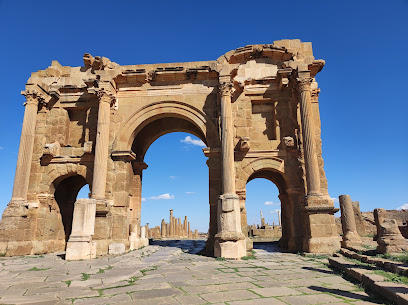
Timgad Theater
Explore the remarkably preserved Roman Theater of Timgad, a UNESCO World Heritage site offering a glimpse into ancient Roman life in North Africa.
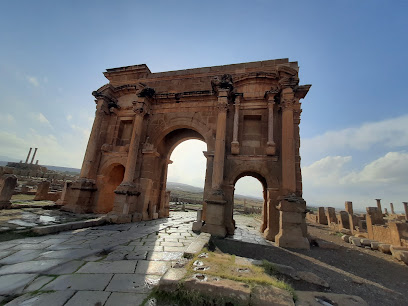
Cemetery of Timgad
Reflect on Roman lives and funerary customs at the Cemetery of Timgad, a poignant counterpart to the city's grand ruins in Algeria.

Unmissable attractions to see
Roman Ruins of Timgad
Discover Timgad, a remarkably preserved Roman city in Algeria, offering a unique glimpse into the urban planning and daily life of the Roman Empire.
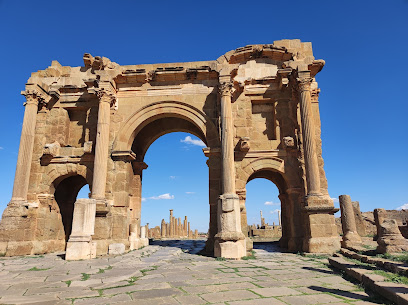
The mausoleum of Imedghassen
Explore the ancient Numidian royal tomb of Imedghassen near Boumia, Algeria, a testament to Berber civilization and architectural brilliance.
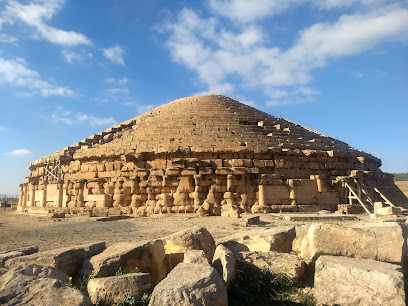
Belzma National Park
Discover Algeria's Belzma National Park: A haven for diverse wildlife, stunning landscapes, and ancient Berber history in the Aurès Mountains.
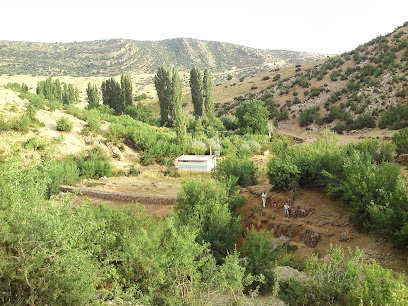
Ruins of Cuicul
Explore Djémila's stunningly preserved Roman ruins, a UNESCO World Heritage site in the Algerian mountains, offering a glimpse into ancient North Africa.
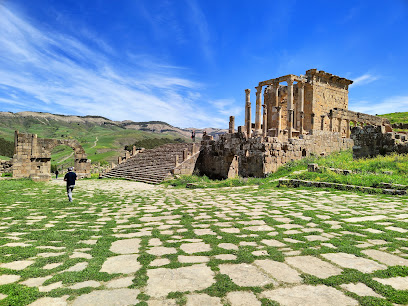
Severan Temple
Explore the Severan Temple in Djemila, a UNESCO World Heritage site, and discover the captivating ruins of this ancient Roman civilization.
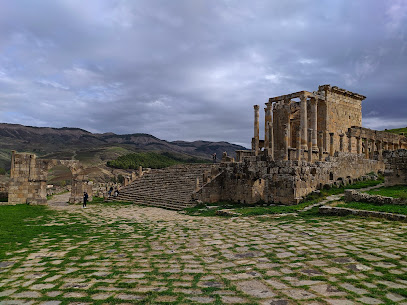
Trajan's Arch
A magnificent Roman triumphal arch in Timgad, Algeria, showcasing the architectural brilliance and historical significance of the Roman Empire.
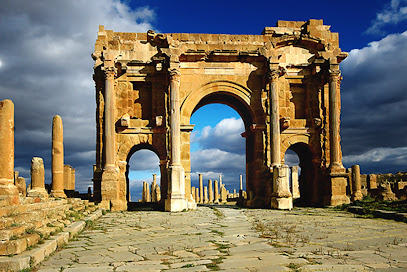
MUSÉE DE TIMGAD
Discover well-preserved Roman mosaics and artifacts at the Musée de Timgad, gateway to the ancient city in Algeria.
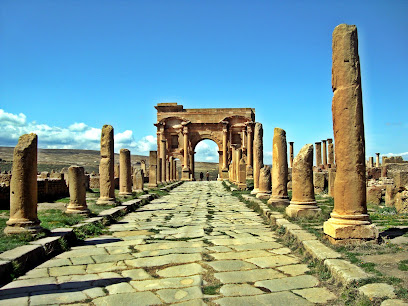
مدرج تيمقاد
Step back in time at Timgad, Algeria's extraordinary Roman city, and explore remarkably preserved ruins offering a glimpse into ancient Roman life.
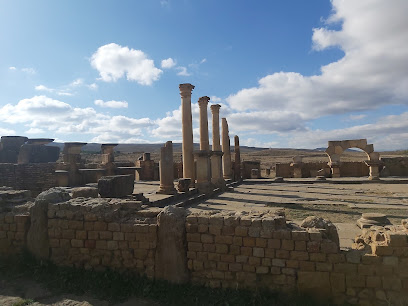
Lambaesis, Roman Military City
Discover Lambaesis, a captivating Roman military city in Algeria with impressive ruins and a rich history dating back to the 2nd century AD.
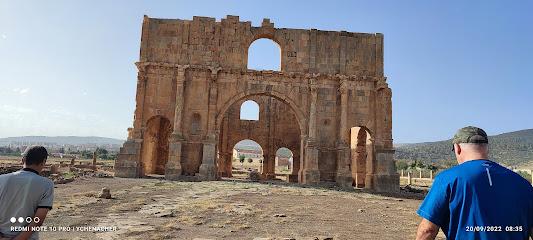
Timgad Theater
Step back in time at Timgad's ancient Roman theater, a remarkably preserved testament to Roman culture and architecture in North Africa.
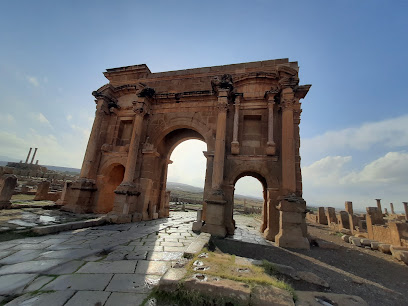
Ancient Lambaesis, Roman Praetorium. (Tazoult)
Discover the Roman military city of Lambaesis in Algeria, with its well-preserved ruins and rich history waiting to be explored.
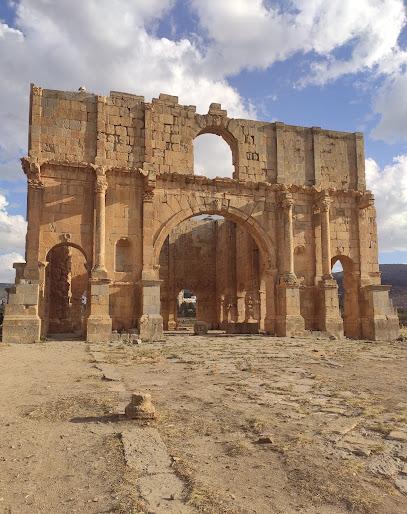
Cirta's Door (Northern Door)
Discover Cirta's Door in Timgad, an iconic Roman landmark showcasing ancient architecture amidst the extraordinary ruins of a vibrant civilization.
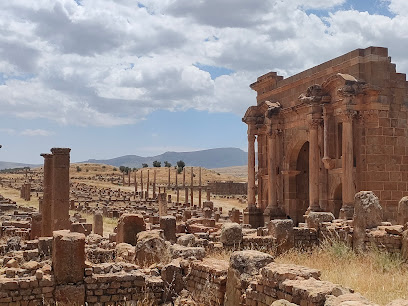
Timgad
Step back in time at Timgad, a remarkably preserved Roman city in Algeria, offering a glimpse into life in Roman North Africa.
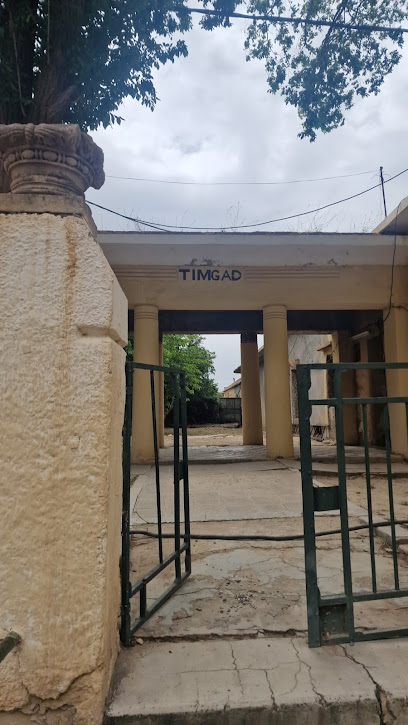
مدخل لموقع الآثار الرومانية تيمقاد
Discover Timgad, the remarkably preserved Roman city in Algeria, offering a glimpse into ancient Roman life and urban planning.
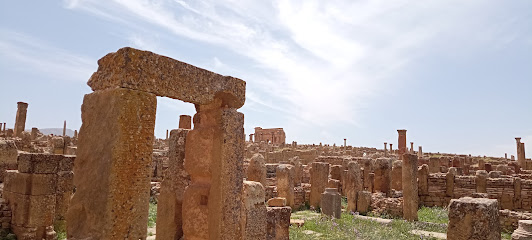
Byzantine Fort on the Aqua Septimiana Felix
Explore the Byzantine Fort in Timgad, a powerful reminder of the Roman city's strategic importance and enduring legacy through the ages.
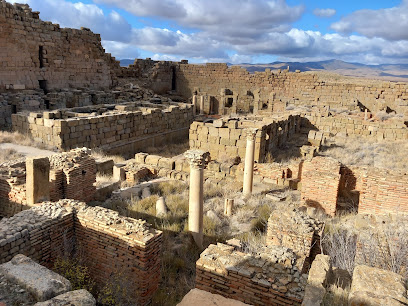
Essential places to dine
Shelia Restaurant
Experience authentic Algerian cuisine at Shelia Restaurant in Timgad – where every dish tells a story.
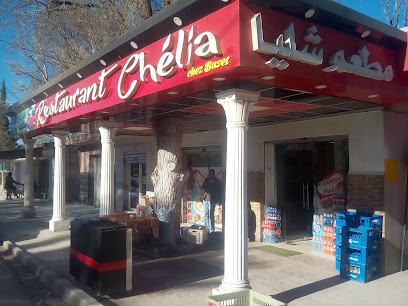
TIMGAD FOOD
Experience authentic Algerian cuisine at Timgad Food - where tradition meets taste in a welcoming atmosphere.
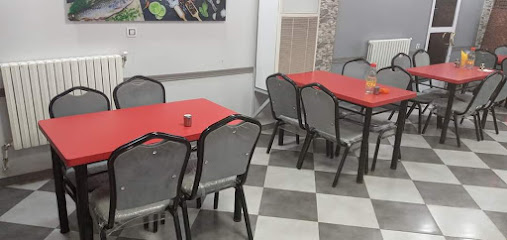
La casa del pizza
Discover authentic Italian flavors at La Casa del Pizza in Timgad – where each slice tells a story.

Essential bars & hidden hideouts
Shelia Restaurant
Discover the flavors of Algeria at Shelia Restaurant, a delightful dining experience in the heart of Timgad.
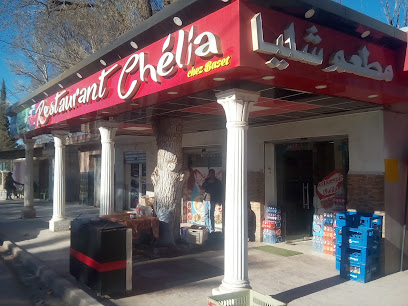
TIMGAD FOOD
Experience the rich flavors of Timgad at Timgad Food, where culinary traditions meet welcoming hospitality in a historic setting.
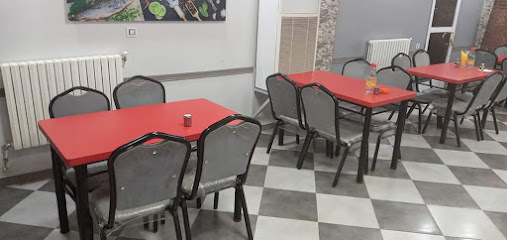
Library of Timgad, Algeria
Discover the ancient Library of Timgad, a historic site showcasing the rich intellectual legacy of Roman civilization in Algeria.
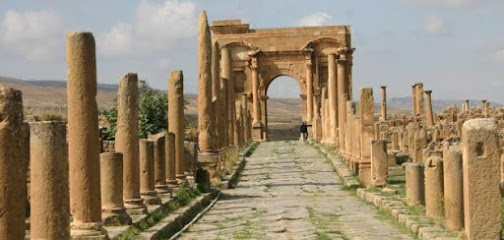
Local Phrases about Timgad Ruins
-
- Helloمرحبا
[marhaban] - Goodbyeوداعا
[wadaean] - Yesنعم
[naam] - Noلا
[laa] - Please/You're welcomeمن فضلك / على الرحب والسعة
[min fadlik / ala alrahb wasia] - Thank youشكرا
[shukran] - Excuse me/Sorryعذرا
[udhran] - How are you?كيف حالك؟
[kayf halik?] - Fine. And you?بخير. وأنت؟
[bukhayr. wa'ant?] - Do you speak English?هل تتحدث الإنجليزية؟
[hal tatahadath al'inglizia?] - I don't understandأنا لا أفهم
[ana la afham]
- Helloمرحبا
-
- I'd like to see the menu, pleaseأريد أن أرى القائمة، من فضلك
[uridu an ara alqaemah, min fadlik] - I don't eat meatأنا لا آكل اللحوم
[ana la aakol allahum] - Cheers!صحتين!
[sahtain!] - I would like to pay, pleaseأود أن أدفع، من فضلك
[awadu an adfae, min fadlik]
- I'd like to see the menu, pleaseأريد أن أرى القائمة، من فضلك
-
- Help!النجدة!
[alnajdah!] - Go away!ارحل!
[irhal!] - Call the Police!اتصل بالشرطة!
[aitisal bialshurta!] - Call a doctor!اتصل بالطبيب!
[aitisal bialtabib!] - I'm lostلقد ضللت الطريق
[laqad dalalt altariq] - I'm illأنا مريض
[ana mareed]
- Help!النجدة!
-
- I'd like to buy...أريد أن أشتري...
[uridu an ashtari...] - I'm just lookingأنا فقط أتفرج
[ana faqat atfarij] - How much is it?بكم هذا؟
[bi kam hadha?] - That's too expensiveهذا غالي جدا
[hadha ghali jiddan] - Can you lower the price?هل يمكنك تخفيض السعر؟
[hal yumkinuk takhfid alsir?]
- I'd like to buy...أريد أن أشتري...
-
- What time is it?كم الساعة؟
[kam alsaa'ah?] - It's one o'clockالساعة الواحدة
[alsaa'ah alwahidah] - Half past (10)الساعة والنصف
[alsaa'ah walnisf] - Morningصباح
[sabah] - Afternoonمساء
[masa'] - Eveningمساء
[masa'] - Yesterdayأمس
[ams] - Todayاليوم
[alyawm] - Tomorrowغدا
[ghadan] - 1واحد
[wahid] - 2اثنان
[ithnan] - 3ثلاثة
[thalatha] - 4أربعة
[arba'a] - 5خمسة
[khamsa] - 6ستة
[sitta] - 7سبعة
[sab'a] - 8ثمانية
[thamania] - 9تسعة
[tasia] - 10عشرة
[ashara]
- What time is it?كم الساعة؟
-
- Where's a/the...?أين ...؟
[ayn ...?] - What's the address?ما هو العنوان؟
[ma huwa alaun?] - Can you show me (on the map)?هل يمكنك أن تريني (على الخريطة)؟
[hal yumkinuk an tureeni (ala alkharijah)?] - When's the next (bus)?متى يأتي الحافلة التالية؟
[mata yati alhafilat altaliyah?] - A ticket (to ....)تذكرة (إلى ...)
[tazkirah (ila ...)]
- Where's a/the...?أين ...؟
History of Timgad Ruins
-
Timgad, also known as Thamugadi, was founded by the Roman Emperor Trajan around AD 100. Originally established as a military colony, Timgad was designed to serve as a bastion against the Berber tribes in the region. The city was laid out in a grid pattern, characteristic of Roman urban planning, and was intended to house Roman veterans who had completed their service.
-
Timgad is an exceptional example of Roman town planning, boasting a rectangular grid of streets, intersecting at right angles. The city was adorned with all the amenities of a Roman metropolis, including a forum, a basilica, public baths, a theater, and a library. The streets were paved with stones, and the buildings were constructed using local materials, showcasing the architectural genius of the Roman Empire.
-
The Decumanus Maximus and Cardo Maximus were the two principal streets in Timgad, running east-west and north-south respectively. These streets were the lifelines of the city, lined with shops, public buildings, and residential quarters. The intersection of these two streets was the commercial and social hub of Timgad, demonstrating the city's vibrant urban life.
-
The Arch of Trajan is one of the most iconic structures in Timgad. Erected in honor of Emperor Trajan, this triumphal arch stands at the western end of the Decumanus Maximus. The arch, with its three passageways, was a symbol of Roman authority and engineering prowess. It served as a grand entrance to the city, welcoming visitors and dignitaries alike.
-
The forum was the civic center of Timgad, where political, social, and commercial activities took place. Adjacent to the forum was the basilica, a large public building used for legal and other civic proceedings. These structures were adorned with statues and inscriptions, reflecting the city's importance and the Roman emphasis on public life and governance.
-
Timgad boasted several public baths, including the large Baths of Trajan. These baths were not just places for bathing but also social hubs where citizens gathered to relax, exercise, and engage in conversations. The baths were equipped with various rooms, including the frigidarium (cold room), tepidarium (warm room), and caldarium (hot room), showcasing the advanced engineering skills of the Romans.
-
The theater in Timgad could accommodate around 3,500 spectators and was a focal point for cultural life in the city. It hosted various performances, including plays, musical events, and public speeches. The semi-circular design of the theater ensured excellent acoustics, allowing the audience to hear performances clearly. The theater's construction reflects the Roman appreciation for arts and entertainment.
-
One of the unique features of Timgad was its library, which was a rare amenity for Roman provincial towns. The library housed numerous scrolls and served as a center for learning and intellectual pursuits. It illustrates the value placed on education and knowledge in Roman society and highlights Timgad's status as a significant cultural hub in North Africa.
-
Timgad began to decline in the 5th century AD due to repeated incursions by the Berbers and the Vandal invasion. Although the city was briefly revived under Byzantine rule in the 6th century, it never regained its former glory. By the 7th century, Timgad was largely abandoned and fell into ruins. Despite this, the city's well-preserved remains offer invaluable insights into Roman urbanism and daily life.
-
The ruins of Timgad were rediscovered in the late 19th century by French archaeologists. Extensive excavations were carried out, revealing the city's well-preserved streets, buildings, and artifacts. The site was declared a UNESCO World Heritage Site in 1982, recognizing its historical and cultural significance. Today, Timgad stands as a testament to the ingenuity and legacy of the Roman Empire in North Africa.
Timgad Ruins Essentials
-
Timgad Ruins are located in the Aurès Mountains of northeastern Algeria, near the town of Batna. The nearest airport is Mohamed Boudiaf International Airport in Constantine, about 120 kilometers away. From Constantine, you can rent a car or take a taxi to Batna. Alternatively, there are buses and trains that connect Constantine to Batna. From Batna, Timgad Ruins are about a 30-minute drive away. It is advisable to hire a local guide or join a tour for a more comprehensive visit.
-
Within Batna, taxis are the most convenient mode of transportation to reach Timgad Ruins. Car rentals are also available for those who prefer to drive themselves. Public buses do run between Batna and Timgad, but they can be infrequent. For a more comfortable and time-efficient journey, consider arranging a private transfer or a guided tour that includes transportation.
-
The official currency in Algeria is the Algerian Dinar (DZD). Credit cards are accepted in some hotels, restaurants, and shops in larger cities, but it is advisable to carry cash, especially when visiting rural areas like Timgad. ATMs are available in Batna, so it is wise to withdraw sufficient cash before heading to the ruins.
-
Timgad is generally a safe destination for tourists, but standard precautions should be taken. Avoid isolated areas and walking alone at night. Keep an eye on your belongings in crowded places. While there are no specific high-crime areas targeting tourists in Timgad, it is always best to stay vigilant and aware of your surroundings.
-
In case of emergency, dial 14 for police, 17 for the fire department, and 1548 for medical emergencies. The nearest hospital is in Batna, so it is important to have travel insurance that covers medical emergencies. For minor health issues, there are pharmacies in Batna where you can purchase over-the-counter medications.
-
Fashion: Do dress modestly, especially when visiting religious sites. Avoid wearing revealing clothing. Religion: Do respect local customs and traditions. Always show respect when visiting mosques or other religious sites. Public Transport: Do be respectful and give up your seat to elderly passengers. Don’t eat or drink on public transport. Greetings: Do greet people with a handshake. A slight bow of the head is also a sign of respect. Eating & Drinking: Do try local delicacies and accept food offerings graciously. Don’t refuse hospitality, as it is considered impolite.
-
To experience Timgad Ruins like a local, consider visiting during the off-peak hours to avoid crowds and enjoy a more serene atmosphere. Engage with local guides who can provide in-depth historical insights and personal stories about the site. Don’t miss the opportunity to explore the local markets in Batna where you can purchase traditional Algerian goods and enjoy authentic cuisine. For a unique experience, try to attend a local cultural event or festival if one coincides with your visit.
Nearby Cities to Timgad Ruins
-
Things To Do in Setif
-
Things To Do in Bejaia
-
Things To Do in Annaba
-
Things To Do in Tozeur
-
Things To Do in Tizi Ouzou
-
Things To Do in Algiers
-
Things To Do in Bizerte
-
Things To Do in Tunis
-
Things To Do in Sousse
-
Things To Do in Hammamet
-
Things To Do in Monastir
-
Things To Do in Sfax
-
Things To Do in Djerba
-
Things To Do in Palma de Mallorca
-
Things To Do in Sabratha










